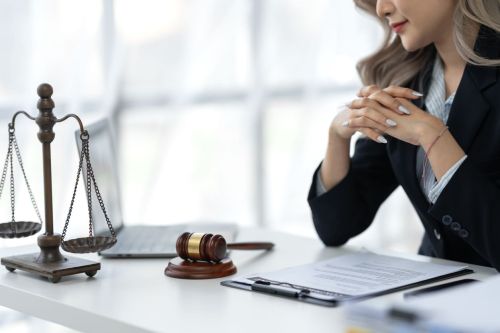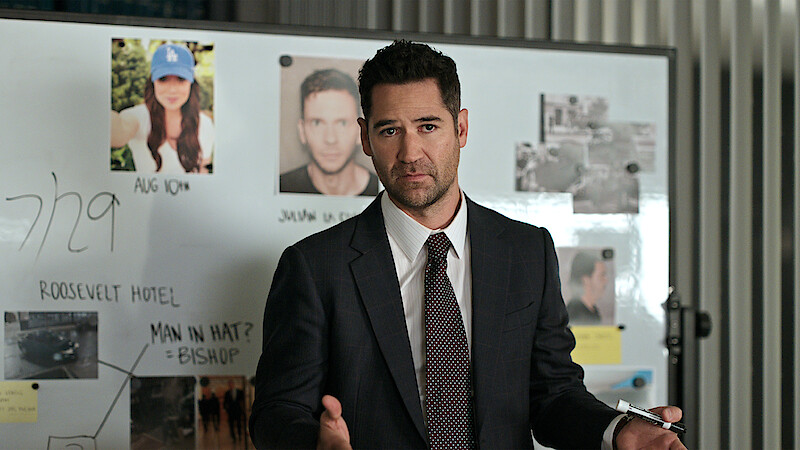A lawyer is a professional who helps people with legal issues. They provide advice, represent clients, and navigate the law.
Choosing the right lawyer can be a crucial decision. The legal system is complex, and having the right support can make a significant difference in your case. Lawyers specialize in various areas, such as family law, criminal defense, and personal injury.
Understanding what a lawyer does and how they can help you is important. Whether you need assistance with a contract, a divorce, or a criminal charge, a skilled lawyer can guide you. This blog will explore the role of lawyers, how to find one, and what to expect during your legal journey.

Credit: www.hopelefeber.com
The Role Of Strategy In Legal Success
Strategy is essential in law. It helps lawyers win cases. A strong strategy shapes every step in legal proceedings. This includes preparation, negotiation, and trial. A well-thought-out plan can make a big difference.
Crafting A Persuasive Narrative
A powerful story can sway a judge or jury. Lawyers must build a clear and convincing narrative. Here are some key steps:
- Understand the facts thoroughly.
- Identify the main issues.
- Highlight key evidence.
- Connect emotionally with the audience.
Each case has its own unique story. A lawyer must weave these elements together. This creates a narrative that resonates.
Importance Of Pre-trial Research
Pre-trial research is crucial for building a strong case. It involves gathering information and evidence. Here are the main components:
| Research Component | Description |
|---|---|
| Case Law | Study previous cases similar to yours. |
| Witness Interviews | Gather testimony from those involved. |
| Document Review | Analyze all relevant documents. |
| Expert Opinions | Consult experts to strengthen your case. |
Thorough research helps identify strengths and weaknesses. It informs the legal strategy. A lawyer who invests time in research is better prepared. This preparation can lead to success in the courtroom.
Key Elements Of A Winning Case
Winning a legal case requires careful planning and execution. Key elements include strong evidence, prepared witnesses, and effective arguments. Each element plays a crucial role in persuading the judge or jury. Focus on these areas to improve your chances of success.
Evidence Gathering Techniques
Gathering solid evidence is essential. Here are some effective techniques:
- Interviews: Talk to witnesses and gather their accounts.
- Documents: Collect relevant paperwork, such as contracts and emails.
- Photographs: Take pictures of the scene or items involved.
- Surveillance: Review any video footage available.
- Expert Analysis: Use experts to interpret complex data.
Organize evidence clearly. Create a timeline or a chart. This helps in understanding the case better.
Effective Witness Preparation
Witnesses can make or break a case. Prepare them properly. Here are some tips:
- Explain the Process: Make sure they understand what will happen in court.
- Practice: Conduct mock testimonies to build their confidence.
- Clarify Questions: Go over the types of questions they might face.
- Stay Calm: Teach them to remain calm under pressure.
- Review Statements: Go over their statements to ensure consistency.
Well-prepared witnesses can provide clear and convincing testimony. This strengthens your case significantly.
Leveraging Legal Precedents
Legal precedents play a crucial role in the judicial system. They guide lawyers and judges in making decisions. Understanding how to leverage these precedents can significantly impact case outcomes. Lawyers use past rulings to support their arguments. This knowledge helps them build strong cases and achieve favorable results for clients.
Analyzing Case Law
Analyzing case law is essential for any lawyer. It involves reviewing previous court decisions that relate to current cases. Here are key steps in this process:
- Identify relevant cases.
- Study the facts and decisions.
- Determine the legal principles involved.
- Assess how these principles apply to the current situation.
Lawyers often create a summary of important cases. This summary includes:
| Case Name | Year | Key Findings |
|---|---|---|
| Brown v. Board of Education | 1954 | Segregation in schools is unconstitutional. |
| Roe v. Wade | 1973 | Women have the right to choose abortion. |
| Miranda v. Arizona | 1966 | Criminals must be informed of their rights. |
Applying Precedent To Current Cases
Applying precedents to current cases requires skill and understanding. Lawyers analyze how similar cases were decided. They use this information to argue their positions. Here are ways to apply precedents:
- Find cases with similar facts.
- Use previous rulings as a foundation.
- Explain how the law supports your argument.
- Anticipate counterarguments based on past decisions.
Effective application of precedents strengthens legal arguments. It shows judges the consistency of the law. This can lead to better outcomes for clients.

Credit: www.netflix.com
Mastering The Art Of Negotiation
Negotiation is a key skill for any lawyer. It determines the outcome of cases. A good negotiation can lead to better settlements. Clients often prefer quick resolutions. Understanding negotiation tactics is crucial for success.
Negotiation Tactics For Settlements
Effective negotiation tactics can lead to favorable settlements. Here are some important tactics:
- Active Listening: Pay attention to the other party. Understand their needs.
- Clear Communication: Speak clearly. Avoid legal jargon.
- Build Rapport: Establish trust. This makes negotiations smoother.
- Know Your Value: Understand the strengths of your case. Use this knowledge.
- Be Prepared: Research the other party. Anticipate their arguments.
Using these tactics can create a positive negotiation environment. This often leads to settlements that satisfy both sides.
Knowing When To Settle Or Proceed To Trial
Deciding whether to settle or go to trial is important. Each choice has pros and cons. Here’s a simple breakdown:
| Option | Pros | Cons |
|---|---|---|
| Settle |
|
|
| Proceed to Trial |
|
|
Consider these factors carefully. The right choice can lead to the best outcome.
Utilizing Expert Witnesses
Utilizing expert witnesses can greatly enhance a legal case. Their specialized knowledge provides clarity. This can help juries and judges understand complex topics. Expert witnesses support arguments with evidence and credibility. This section explores how to effectively select and use these experts.
Selecting The Right Expert
Choosing the right expert is crucial. Here are key factors to consider:
- Qualifications: Check their education and experience.
- Reputation: Look for positive reviews and references.
- Specialization: Ensure their expertise matches your case.
- Communication Skills: They must explain complex topics simply.
Finding an expert who fits these criteria is vital. Their role can shape the outcome of your case.
Maximizing The Impact Of Expert Testimony
Effective expert testimony can sway a case. Here are some strategies:
- Preparation: Prepare the expert for questions and courtroom procedures.
- Clear Presentation: Ensure they present information clearly and confidently.
- Use Visual Aids: Charts or graphs can clarify complex data.
- Practice Cross-Examination: Prepare them for tough questions from opposing counsel.
By maximizing their impact, expert witnesses can provide strong support. This can lead to a favorable outcome.
Technology In The Courtroom
Technology is changing how courts operate. It helps lawyers present cases more clearly. Judges and juries now have better tools to understand evidence. This shift makes trials faster and more efficient.
Innovative Presentation Tools
Lawyers use many tools to present their cases. Some of these tools include:
- Interactive Displays: These screens show evidence clearly.
- Video Presentations: Videos can highlight key moments.
- 3D Models: They help visualize complex scenarios.
These tools engage jurors. They make complex information easier to grasp. Visual aids enhance understanding. This leads to better decision-making in the courtroom.
Digital Evidence Management
Managing evidence has never been easier. Digital tools help organize and store evidence securely. Some benefits include:
- Easy access to files and documents
- Secure sharing with team members
- Fast retrieval during trials
Lawyers can track all evidence digitally. This reduces the risk of losing important documents. It also saves time. A well-organized digital system ensures everything is in place.
Psychological Aspects Of Jury Persuasion
The jury’s decision can change lives. It reflects their understanding and emotions. Lawyers must connect with jurors. They must appeal to their feelings and thoughts. This requires a deep understanding of psychology.
Understanding Jury Dynamics
Jury dynamics play a crucial role in trials. Each juror brings their own experiences. These experiences shape their views and decisions.
- Group Influence: Jurors often influence each other.
- Personal Bias: Each juror has unique biases.
- Emotional Reactions: Emotions often drive decisions.
Lawyers must recognize these dynamics. They should observe jurors’ interactions. This helps in understanding how they think.
Effective Communication Techniques
Effective communication is key. Lawyers should use simple language. They must tell a clear story. This helps jurors relate to the case.
| Technique | Description |
|---|---|
| Storytelling | Use relatable narratives to engage jurors. |
| Body Language | Maintain eye contact and open posture. |
| Repetition | Repeat key points to reinforce messages. |
Using visuals can enhance understanding. Charts and images can clarify complex ideas. Always focus on the main message. This keeps jurors attentive and involved.
Effective communication builds trust. Jurors need to feel confident in the lawyer. This trust can sway their decisions.
Ethical Considerations In Legal Strategy
Legal strategies are crucial for any case. Lawyers must navigate complex ethical waters. Balancing effective advocacy with integrity is vital. Let’s explore key ethical considerations in legal practice.
Maintaining Integrity In Advocacy
Integrity is the backbone of effective legal advocacy. Lawyers must uphold ethical standards at all times. This includes:
- Honesty: Being truthful in all communications.
- Transparency: Disclosing relevant facts to clients.
- Respect: Treating all parties with dignity.
Ethical lawyers avoid misleading tactics. They focus on the truth. Upholding integrity builds trust with clients and the court.
Navigating The Boundaries Of Aggressive Representation
Aggressive representation can be effective but must stay ethical. Lawyers should know where to draw the line. Here are some points to consider:
- Avoiding deceit: Never use false evidence.
- Respecting confidentiality: Keep client information private.
- Following the law: Always adhere to legal guidelines.
Strong representation does not mean crossing ethical boundaries. Lawyers should advocate fiercely while respecting the law. This balance is essential for a fair legal system.
Continuous Learning And Adaptation
The legal field changes often. Lawyers must keep learning. Continuous learning helps lawyers stay relevant. It also ensures they provide the best service to clients.
Staying Updated On Legal Trends
Legal trends shift regularly. Lawyers need to follow these changes. They can do this through various methods:
- Reading legal journals and articles
- Attending workshops and seminars
- Participating in online courses
- Joining professional organizations
Staying informed helps lawyers understand new laws. It helps them anticipate the needs of their clients. Lawyers can use this knowledge to improve their practice.
Adapting Strategies To Changing Laws
Laws often change. Lawyers must adapt their strategies. This ensures they meet new legal requirements. Key steps include:
- Reviewing current practices
- Updating legal documents
- Training staff on new laws
- Communicating changes to clients
Adaptation is crucial for success. It helps lawyers maintain their reputation. Clients expect them to be knowledgeable and prepared.

Credit: www.helpishere.law
Frequently Asked Questions
What Does A Lawyer Do?
A lawyer provides legal advice and representation. They assist clients in understanding the law, navigating legal processes, and resolving disputes. Lawyers specialize in various fields, such as criminal law, family law, and corporate law. Their expertise helps clients achieve favorable outcomes in legal matters.
How To Choose The Right Lawyer?
Choosing the right lawyer involves assessing your needs. Start by identifying your legal issue and required expertise. Research potential lawyers’ qualifications, experience, and client reviews. Schedule consultations to evaluate their communication style and approach. A good fit can significantly impact the success of your case.
What Are The Types Of Lawyers?
There are many types of lawyers, each specializing in different areas. Common types include criminal lawyers, family lawyers, corporate lawyers, and personal injury lawyers. Some lawyers focus on immigration, intellectual property, or tax law. Understanding these specializations helps you select the right legal representation.
How Much Do Lawyers Charge?
Lawyer fees vary widely based on experience and location. Some charge hourly rates, while others may offer flat fees or contingency arrangements. On average, hourly rates can range from $100 to $500 or more. It’s essential to discuss fees upfront during initial consultations to avoid surprises.
Conclusion
Choosing the right lawyer matters. A good lawyer guides you through legal issues. They help protect your rights and interests. Trust and communication are key in this relationship. Take your time to find someone who understands you. Research and ask questions.
Make sure you feel comfortable with your choice. Remember, legal matters can be complex. Having the right support makes a big difference. A lawyer can help you navigate these challenges with confidence. Invest in your future by choosing wisely.
